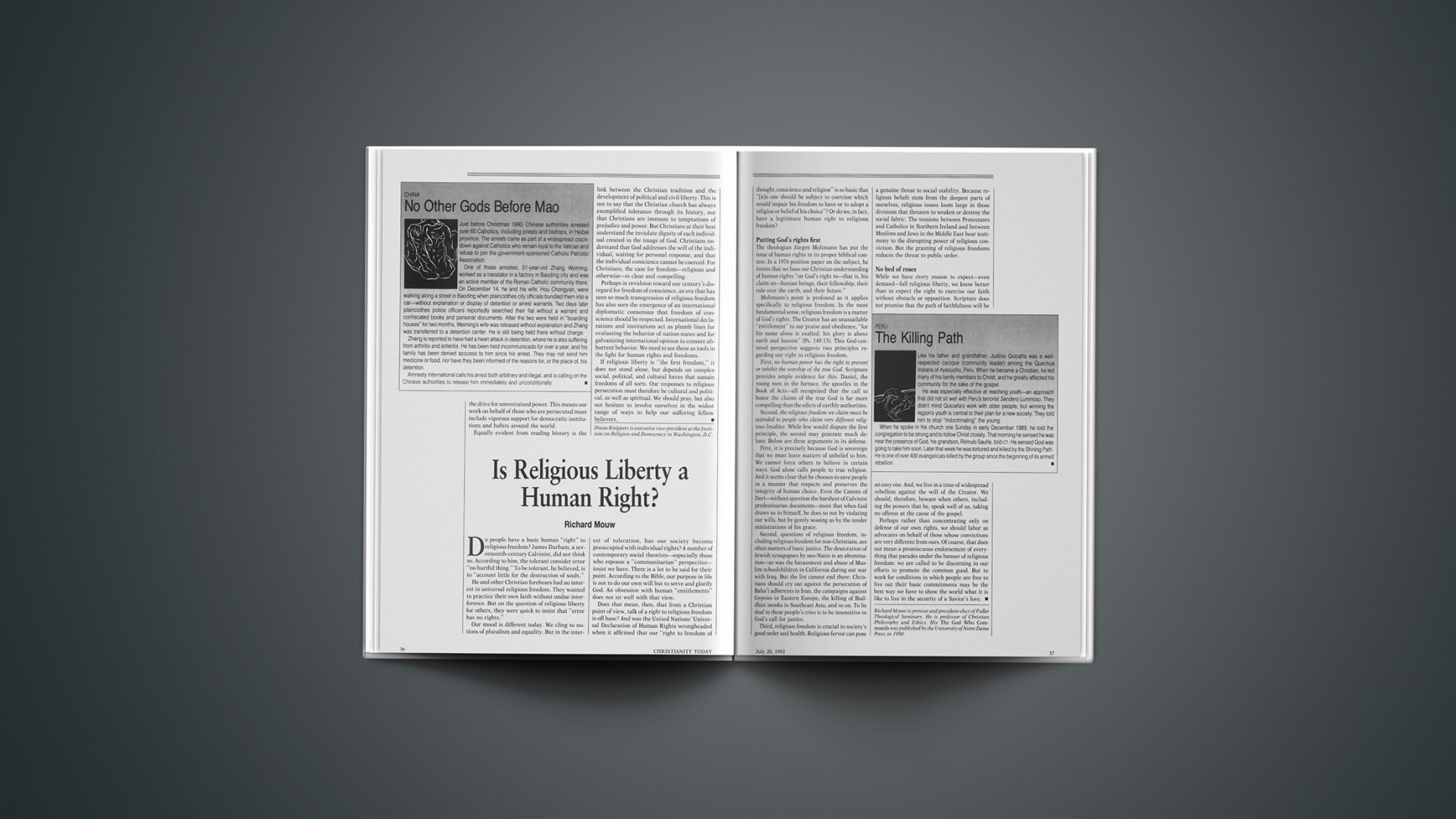Like his father and grandfather, Justino Quicaña was a well-respected cacique (community leader) among the Quechua Indians of Ayacucho, Peru. When he became a Christian, he led many of his family members to Christ, and he greatly affected his community for the sake of the gospel.
He was especially effective at reaching youth—an approach that did not sit well with Peru’s terrorist Sendero Luminoso. They didn’t mind Quicaña’s work with older people, but winning the region’s youth is central to their plan for a new society. They told him to stop “indoctrinating” the young.
When he spoke in his church one Sunday in early December 1989, he told the congregation to be strong and to follow Christ closely. That morning he sensed he was near the presence of God, his grandson, Rómulo Sauñe, told cr. He sensed God was going to take him soon. Later that week he was tortured and killed by the Shining Path. He is one of over 400 evangelicals killed by the group since the beginning of its armed rebellion.
Perhaps rather than concentrating only on defense of our own rights, we should labor as advocates on behalf of those whose convictions are very different from ours. Of course, that does not mean a promiscuous endorsement of everything that parades under the banner of religious freedom: we are called to be discerning in our efforts to promote the common good. But to work for conditions in which people are free to live out their basic commitments may be the best way we have to show the world what it is like to live in the security of a Savior’s love.










